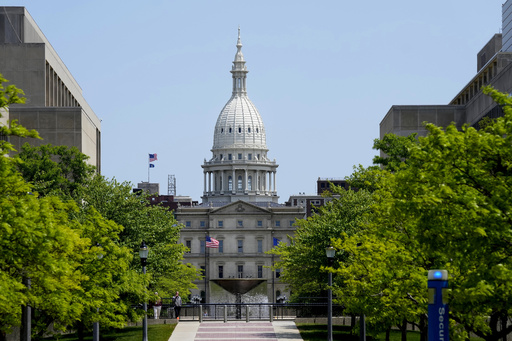LANSING, Mich. (AP) — State economists delivered their final economic forecast this year for Michigan and indicated that tax revenue will continue to stabilize, which they see as a positive development following years of record surpluses driven by pandemic-related funds.
Michigan lawmakers are working to finalize the state budget ahead of their self-imposed July 1 deadline and Friday’s outlook on the state’s economy and tax revenue projections gives lawmakers a roadmap for the available funds for the fiscal year starting Oct. 1 and beyond. An outlook was also provided in January as lawmakers began the budget process, but Friday’s was more finalized.
This year’s tax revenue is projected to be approximately $31.7 billion, reflecting a slight increase from January’s estimate. Revenues are anticipated to grow gradually, reaching $32.4 billion for the fiscal year starting October 1. The following year, a further increase of about 3.2% is expected.
The fiscal forecast came during a revenue-estimating conference held Friday at the state Capitol that included officials from the Department of Treasury, Senate Fiscal Agency and House Fiscal Agency.
“Today’s consensus is that Michigan has a strong and stable revenue and economic foundation for finalizing the state budget,” said State Treasurer Rachael Eubanks. “Our economy is adding jobs and bringing more people back to work, marking a strong recovery in labor participation. This is great news now and for our future.”
Pandemic-related funds resulted in record-setting surpluses for Michigan in recent years, including a $9 billion surplus in 2022, the highest in the state’s history. An $82 billion budget that year spent much of that surplus.
State budgets in the coming years are expected to level out as surpluses are projected to remain below $1 billion. In February, Gov. Gretchen Whitmer outlined a $80.7 billion budget with a boost in education spending that included funding to provide free community college for all high school graduates and free preschool for 4-year-olds.
The Michigan House and Senate have since worked to pass their own budgets, and over the next month will meet to come to an agreement that also aligns with the governor’s requests. Democratic lawmakers so far have disagreed on how to implement Whitmer’s educational proposals.
Republicans have broadly criticized the budget for its size, with House Republican Leader Matt Hall labeling it as “wasteful spending.”
Democrats hold slim majorities in both chambers in addition to controlling the governor’s office. But they will need to get some Republicans on board with the budget in order for it to get immediate effect, which requires the approval of two-thirds of lawmakers in the Senate. The new fiscal year begins on Oct. 1.


